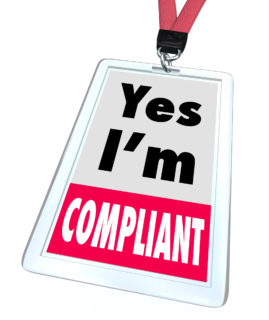
18 Jan Oregon Cannabis: Are the Days of Administrative Settlement Over? Not Entirely.
 Make it happen!
Make it happen!
I’ve been suspicious the last few months that the Oregon Liquor Control Commission (OLCC) is starting to set a zero tolerance policy for marijuana rule violations. Unfortunately, the extrinsic evidence seems to be proving my suspicions.
As I’ve previously written, the OLCC settlement policies seemed to shift last September. In a first for the commission, they rejected a settlement proposal that would have allowed a licensee to keep its license and pay a fine. That particular licensee, Black Market Distribution, LLC, either needs to fight for its license at a hearing or surrender its license. The OLCC has not issued a final order related to Black Market Distribution yet and the company still have its license according to the approved license list. Only time will tell if Black Market Distribution is able to keep their license in light of the alleged violations.
As I wrote in November, if the OLCCs continued actions are any indication, Black Market Distribution may have little chance of keeping their license. In December, the OLCC seemed to continue down a path of refusing to settle cases unless the Licensee agrees to sell the business or surrender the license.
- The OLCC alleged licensee Positive Vibrations committed four Category IV violations relating to advertising rules. The OLCC proposed a 34-day suspension or a civil penalty of $5,610. However, the OLCC and Positive Vibrations were able to reach a settlement agreement requiring Positive Vibrations to accept responsibility for the Category IV violations and either serve a 26 day suspension or pay a civil penalty of $4,290.00.
- In the only other settlement agreement from December, the OLCC alleged licensee Greenway Ventures committed 10 violations, including two Category I violations. Even a single Category I violation is sufficient to revoke a license. Based on the violations, the OLCC proposed license cancellation. Greenway and the OLCC entered a settlement agreement that required Greenway to sell the business or surrender its license by March 30, 2019. Greenway must also accept a Letter of Reprimand for the violations that will become a permanent part of its file and may be considered in future applications. Further, the Greenway had to forfeit 21 totes of marijuana to the OLCC for destruction.
Not only have we seen the OLCC entering into stricter and more stringent settlement agreements, but our office has seen a significant influx of charging documents issued by the OLCC. These usually come about after anonymous complaints are made to the OLCC regarding potential rule violations of the licensee. After an anonymous complaint is received by the OLCC, the OLCC assigns the complaint an investigator. The investigator then conducts inquiries and visits the licensed premises. The investigator will not only investigate the allegations of the complaint, but will also look into other practices of the licensee. This can often result in multiple rule violations.
So, what’s the takeaway? As we’ve said in the past (and will continue to say), the only way to avoid OLCC charging document exposure is to ensure compliance with the rules. How do you do that? The best way is to create a compliance position for your license, and designate or hire a compliance person. This might not be cheap but it will probably save you in the long run. That person’s job will be to keep up to date on OLCC rules (which are still being updated frequently), and to ensure that every aspect of the license is in compliance with those rules. Alternatively, split up the job among several experts. If you have someone running your Instagram account, for example, make it their job to ensure that every Instagram post and every marketing item that stems from the license complies with the rules. Have someone become an expert in CTS, tagging, and manifest. Etc. The bottom line is, make sure you have someone or a team of someones that know the rules inside and out, and isn’t shy about speaking up when practices are lax. If you and the compliance expert cannot figure something out, hire an attorney to review your practices. At the end of the day, it’s better to pay up front to ensure rule compliance rather than to pay the OLCC in penalty fees or lose your license altogether.


Sorry, the comment form is closed at this time.